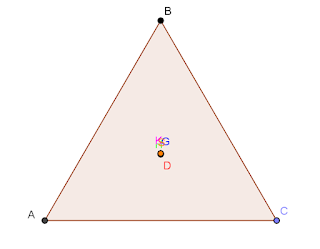I remember at the beginning
of this semester I had a very difficult time defining math. I have been asked
this question many times in my life, but I am never able to give an answer that
I think fully reflects everything mathematics covers. However, this semester, I
feel like I got a good, quick look at many aspects of mathematics and how it
has developed over time.
At the beginning of the
semester I said math is a logical way of explaining everything in the world and
you can find math everywhere you go. I still think I would define math in a
similar way. However, now my own definition that I created means even more.
Throughout the semester I have seen example after example of math involved in
ways I had not thought of before. For example, doodling and math, the Fibonacci
sequence found in plants, and tessellations. I feel like these examples show
the art and beauty of math, while most people only think of topics like
calculus and algebra when considering the question “what is math?”
I think math is more
integrated in our lives than many realize. Scientists use math while investigating,
for example, using data or weighing objects. Physicists and Statisticians use
math while solving equations. Art is full of mathematics patterns like symmetry,
space filling doodling, and the Fibonacci sequence. On a day to day basis,
everyone uses math to buy items, measure food, and tell time.
I have come to realize that
math can be complicated like abstract algebra and non-Euclidean geometry; however,
it can also be simply explaining everything surrounding you. Math is found in
everything. Either how it was made, how it is formed, or patterns within it.
Additionally, at the
beginning of the class we were asked to list the five most important moments in
the history of math. I was a little embarrassed that I could not come up with a
good list of five moments or even a good list of mathematicians. None of my
teachers or professors had ever focused on the history of math in any of my
classes. The most I ever learned was maybe the name of the mathematician who
discovered what we were learning. But I never was able to learn about their
lives and all that they had proved and done for math. Now, after taking this
class, I can name off who I think are the most significant mathematicians in my
opinion: Euler, Euclid, Newton, and Fibonacci.
Additionally, I feel like
many people think everything in mathematics has already been found or
discovered. But, it was fun to see that mathematicians continue to discover and
prove ideas today.
I think in order to
appreciate math fully, you need to understand how large of a field mathematics
truly is. It is important to know how long ago some math concepts were
discovered and the process mathematicians went through to discover what we know
today.






















